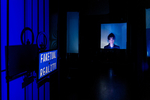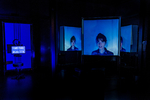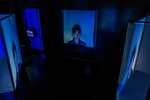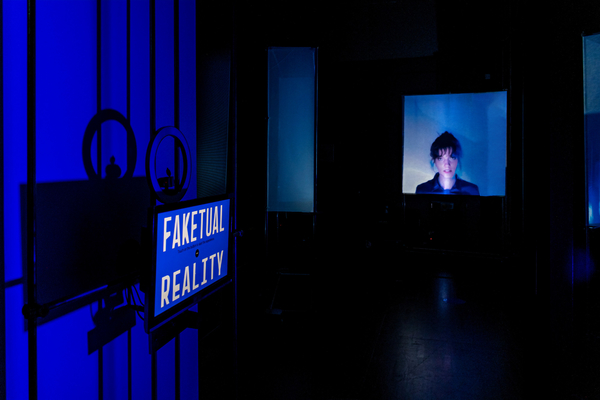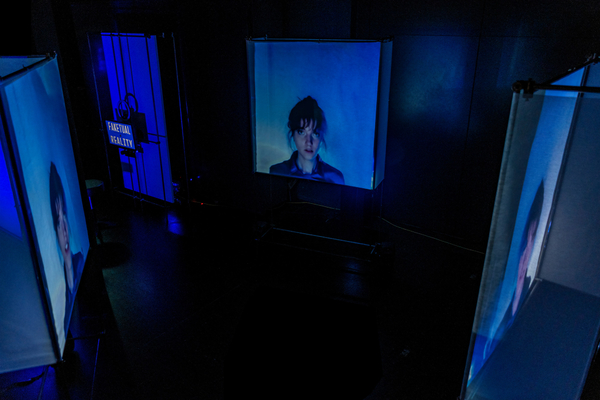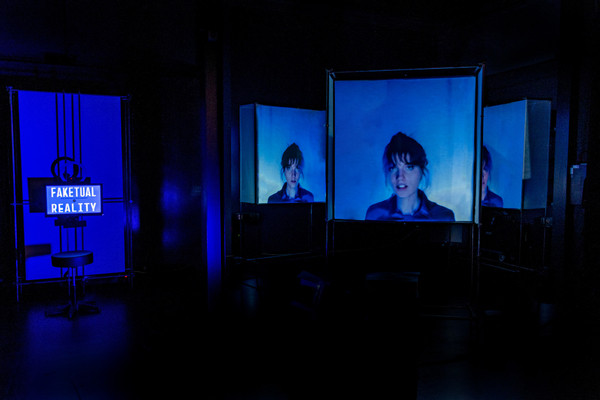
Paulina Zybinska
Faketual Reality
Paulina Zybinska (1993)
kratadata
70% ZHdK
30% freelance
Master, Interaction Design, ZHdK, 2021
Master, Animation, St.Joost (NL)
Bachelor, Game Design, SAE Institute
Faketual Reality
2021
Zurich
Coursework, Master, Interaction Design, ZHdK, 2021
ETH Media Technology Center, Zurich; Alessia Paccagnella, Zurich
Audiovisual installation
5 × 6 × 2.2 m
Interactive installation (first stage) recording, roughly 2 minutes;
(second stage) video, 3 minutes
3 projection screens, 1.2 × 1.2 m; 3 active stereo speakers; 1 touchscreen; 1 microphone; 1 Foscam W81; 1 Linux machine (NVidia 2080TI graphics card); 1 Windows machine (3 HDMI outputs); 2 monitors; 2 computer mice; 2 keyboards; 3 HDMI to audio splitters; 3 DP to HDMI adapters; 3 HDMI cables 5 m; 5 HDMI cables 1 m; 1 Cat. 7 cable
–
Built upon the architecture of the human brain, the neural-based nature of machine learning offers intricate means of perpetuating the manipulation of users’ moral and political attitudes. The usage of synthetic media becomes more prevalent in moderating digital environments where users interact only with content tailored to their biases and judgments. This manifests itself in the form of fabricated stories – a cascade of misinformation which amplifies and transmits a person’s online stance to the outside world. Consequently, the media does not only shape present attitudes, it also has the capacity to influence past memories by exploiting fundamental flaws of human memory such as bias, suggestibility and transience.
The synthetisation of media was the starting point for the interactive, audiovisual installation Faketual Reality. Based on psychological “OCEAN” test and on-site recordings, simulated realities are presented to visitors in the form of short clips with synthesised “deepfake” sentences. Through the experience of seeing the “other self”, Faketual Reality grants visitors the opportunity to gain a better and closer understanding of the social and political dimension of machine learning algorithms and their impact on privacy.
